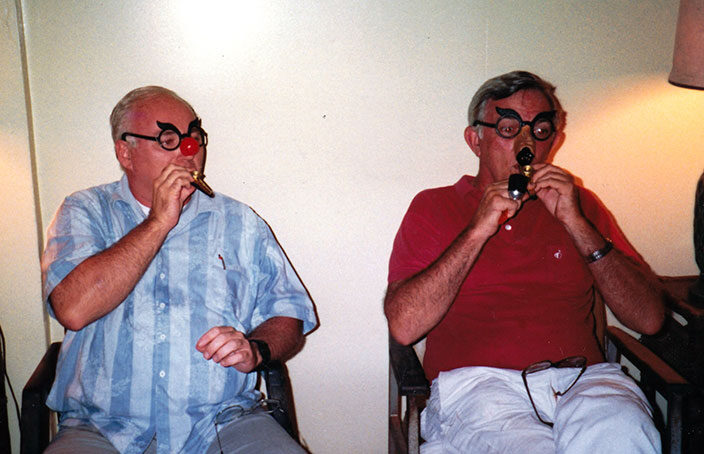Send In the Clowns
That’s the title of a haunting melody from Stephen Sondheim’s 1973 musical “A Little Night Music.” It was a big song in its day, with some 500 versions including those by Judy Collins, Frank Sinatra, and Barbra Streisand. It’s the sardonic reflection of a woman who realizes that she and her boyfriend will never find a happy life together.
Isn’t it rich? Are we a pair?
Me here at last on the ground/ You in mid‑air
Send in the clowns.Don’t you love farce? My fault, I fear
I thought that you’d want what I want/ Sorry, my dear
But where are the clowns? Quick, send in the clownsDon’t bother, they’re here
The theme here is a throwback to the old mantra of early theater: “If the show isn’t going very well, let’s send in the clowns.” In other words, “Let’s have them do jokes to salvage what we can of the disastrous performance.”
“I think we have to accept that we’re all the clowns, in a way,” one critic said, noting that Sondheim himself said “Send in the Fools” might be a more appropriate, if less poetic, title for the song. “We can control some things but so much is out of our control. And, sometimes, the worst things that happen to us end up being the best things that could have happened to us.”
Life is melodramatic. Love relations are threatened or end ingloriously. The show isn’t going very well at all. Our fondest hopes are crashing down in front of us. What do you do in the face of all this? You send in the clowns. Distract everyone from the disastrous turn that the show has taken. Tell a few jokes to lighten the mood.
A few forced laughs might help. It won’t change the unhappy ending of the show, or the drama of our life. It won’t repair the love bonds between the couple who are ready to say their final goodbye, perhaps with tears in their eyes. It won’t magically turn the tragedy into a comedy. The outcome may be the same, but our understanding of it might be quite different.
No need to send in the clowns to divert the attention of the audience from the disastrous production. The fools who are supposed to distract are already on stage; in fact, they are the main characters of the play. Just look at the mess they have made of what could have been a beautiful story. What was planned to end in exuberant hugs and smiles has turned out all wrong. Just look at the tears in everyone’s eyes.
But Sondheim’s message goes a little beyond this. Love may truly be a “many-splendored thing,” as another old song puts it, but its course is a strange one, full of twists and turns and frequently an abrupt ending. So, when the story line turns sour, do we pick up the loaded revolver and determine that it’s time to end it all? No, Sondheim suggests. Life and love are fickle, and it’s no surprise that things don’t always work out. Maybe we just call time out instead of bringing down the final curtain. Maybe it’s time for a laugh or two, even if somewhat forced, to distract ourselves as we try to put this sad ending in some kind of perspective. Perhaps we can summon the wisdom to realize that we ourselves, through our own foolishness, can be blamed for some of what we have just gone through.
No need to bring in the clowns. We’re already here. We may have made a mess of our life’s drama, but we can distance ourselves from it just a bit, laugh at ourselves, and continue the show. There’s so much more to come.






